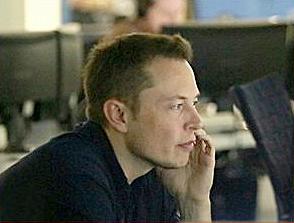
LONDON, UK, November 8, 2013 (ENS) – Britain’s Coalition government has called on Elon Musk, CEO and co-founder of U.S. electric car company Tesla Motors, to personally advise the government on how to get British drivers into electric vehicles more quickly.
During a speech on the environment Thursday at the Royal Society of Arts, UK Deputy Prime Minister Nick Clegg said he tapped Musk as an advisor as part of the government’s outreach to “key players in the automotive industry to find out how we kick start demand and make the UK the number one European destination for investment in ultra low emissions vehicles.”

Clegg said, “Elon helped design the ground-breaking Tesla Roadster. He brings unmatched expertise to the table. Among other issues, he’ll consider how we can boost investment, massively increase the take up of electric vehicles across the country and promote the benefits of ultra low emission vehicles more widely to drivers.”
The UK government is inviting “innovative ideas” from automotive industry professionals, local authorities and fleet managers that will encourage more people to choose vehicles with the lowest possible emissions.
Clegg’s call for evidence comes following the government’s announcement in June of a £500 million investment to bolster the market for ultra low emissions vehicles between 2015 and 2020.
The investment is “one of the most substantial packages of support for ultra low emissions vehicles in the world,” said Clegg. “It will be used to support electric cars and other vehicles that produce almost no carbon, creating jobs and boosting economic growth, as well as tackling climate change and air quality issues,” he said Thursday.
Clegg, said, “The UK’s automotive industry has undergone a renaissance in recent years and we have the potential to emerge as a trailblazer in the development, design and manufacture of green cars.”
The Nissan factory in Sunderland produces the world’s number one electric car – the LEAF, Clegg pointed out.
And Toyota chose their factory in Derbyshire as the first place outside Japan to mass manufacture their hybrid technology, he reminded the audience.
Over 6,000 ultra low emissions vehicles have been sold in the UK with government-funded consumer incentives and 10,000 chargepoints installed.

“We’re doing well compared to our European competitors, helped by a buoyant UK car market,” said the deputy prime minister. “But, if we’re to stay ahead we need to secure the UK’s position as both a global leader in the production and adoption of low carbon vehicles. We need to see more people who live in Britain driving these cars and enjoying the lower running costs they can bring.”
Clegg is seeking opinions on where emphasis should be placed and if particular areas, for example taxis and fleet vehicles, should be targeted more directly.
It’s clear that despite the long-term savings they offer the current upfront costs of electric cars are still quite high, he said.
“They currently make most financial sense for the biggest purchasers and biggest users of cars we have: fleet vehicles, hire cars and taxis – cars that are on the road every day and can take full advantage of the lower running costs.
Clegg said he especially wants to hear from cab companies and fleet purchasers, in both private and public sectors, about what they would need to make the jump from buying low emission to specifically ultra-low emission vehicles.
“Tell us what the barriers are. Tell us how we can help reduce costs and keep these vehicles affordable. Tell us what changes we need in our infrastructure and business environment,” he invited. “We already have some excellent tax incentives to help drive adoption of this technology in the crucial fleet sector. But what else can we do?”
Clegg said that if Britain can get this right, it will deliver wider benefits to the automotive sector throughout the supply chain, helping small and medium sized enterprises across the country.
“We can help secure the UK’s position as a global leader in ultra low emission vehicles, and that would be a huge boon for our economy, and our environment too,” said Clegg.
The call for evidence will close on January 10, 2014 and the government is planning to publish details of the planned 2015 to 2020 package later in 2014.
Copyright Environment News Service (ENS) 2013. All rights reserved.
© 2013, Environment News Service. All rights reserved. Content may be quoted only with proper attribution and a direct link to the original article. Full reproduction is prohibited.
